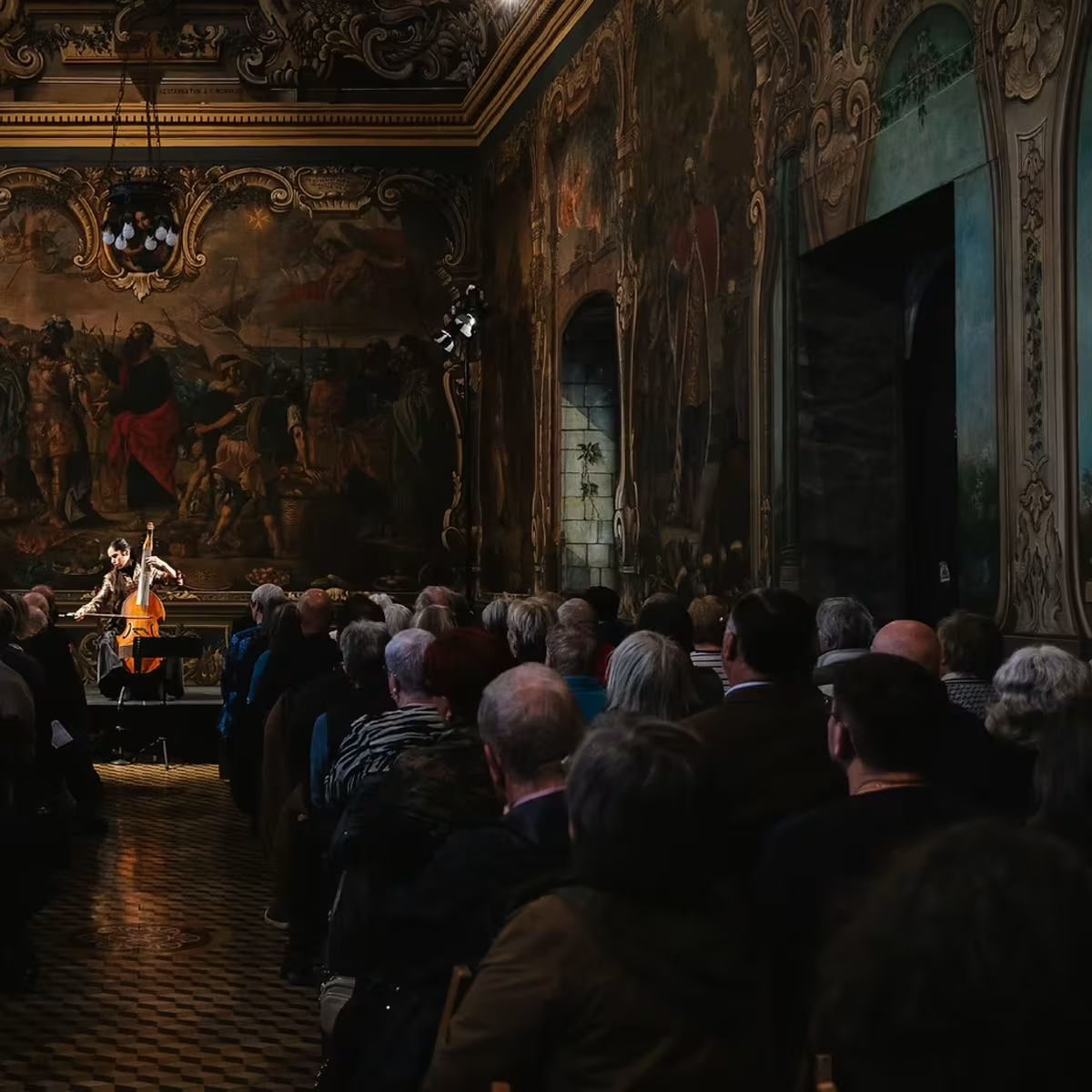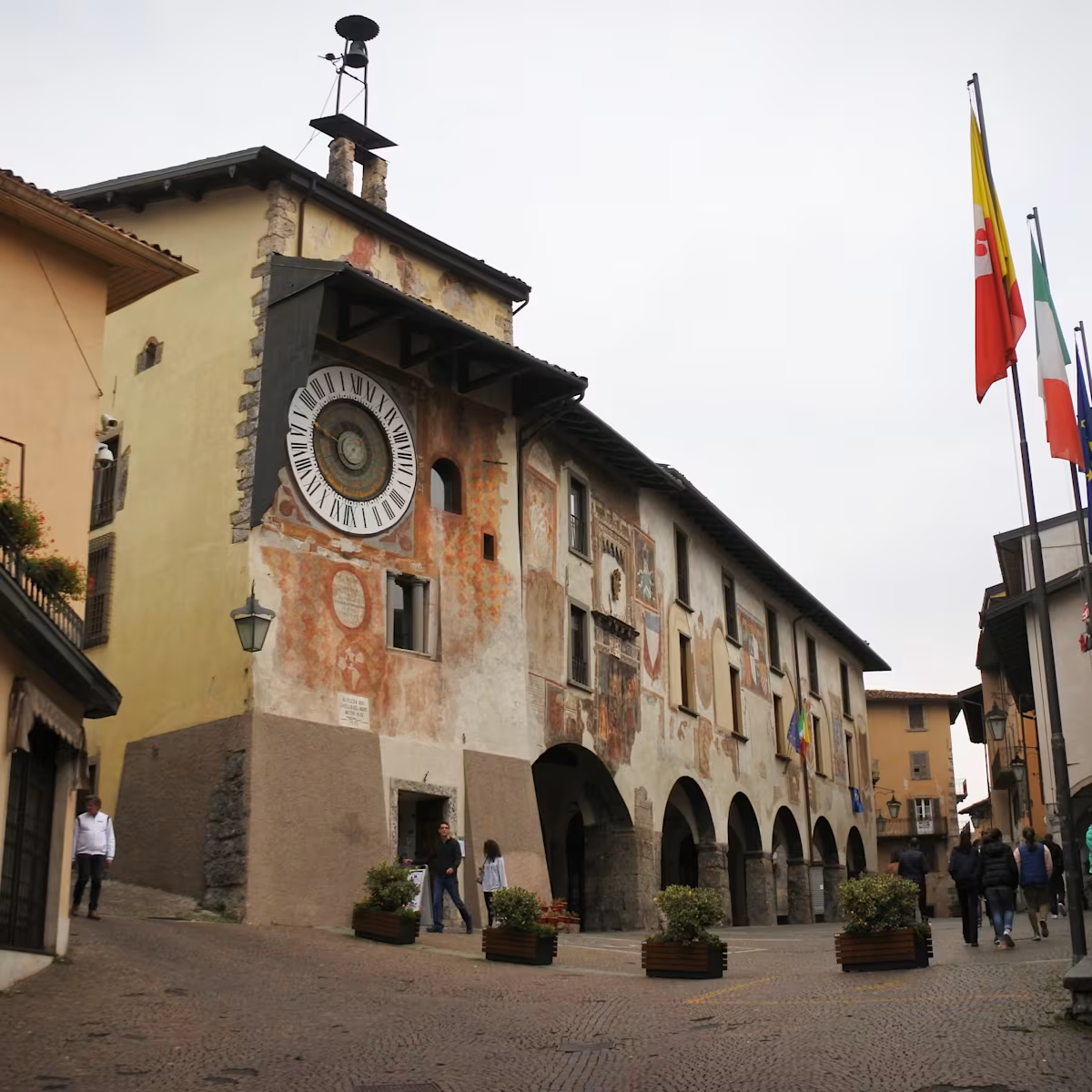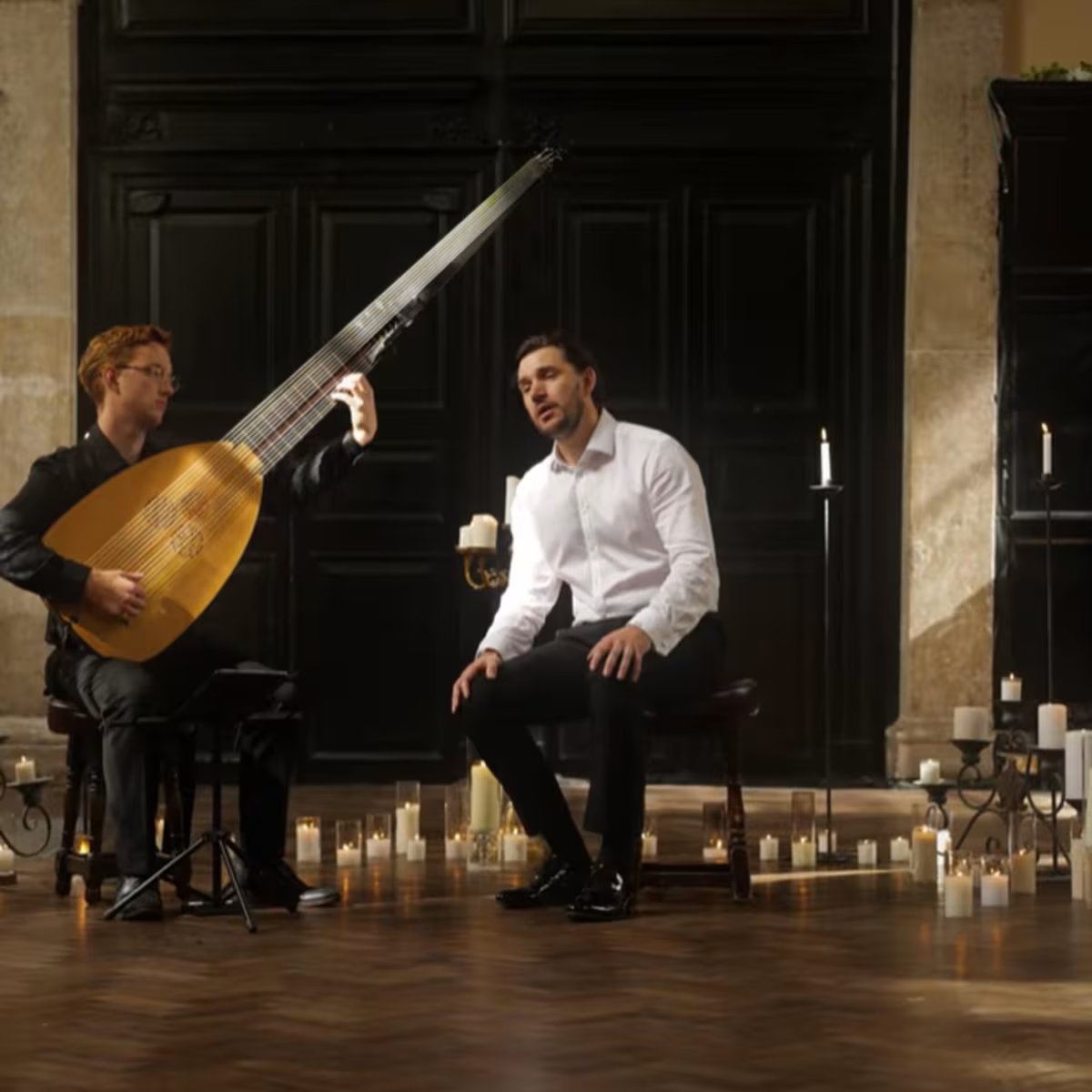Feature
Thomas Dunford – Never Still
Share this

FIRST PUBLISHED 06 APR 2025
The image of the lutenist is of a musician in repose, calmly strumming and plucking in the corner of a courtly salon, the most chamber of chamber environments. Thomas Dunford's life is not like that at all. He is reported to be the busiest lutenist on the planet and, given how hard it was to catch him at home for an hour, I can well believe it. We tried to speak when he was dashing through an airport, clambering onto a train and in gaps between rehearsals. Third time lucky! Nominally based in Paris, he is as much to be found crossing America, traversing Switzerland or visiting Germany. He is as versatile as he is well-travelled. “I grew up with a family of viol players. I just love music and I happened to end up playing the lute. I'll pluck anything. I started on the ukulele when I was four, moved on to the guitar then began on the lute at nine. I got an archlute when I was 14 and a theorbo at 18.” He still plays the whole range of lute and guitar instruments, “but most of the time I use the archlute, because it has the upper and lower strings.”
The archlute is not the easiest instrument to travel with. As well as being immensely fragile, it is profoundly the wrong shape for modern transport, particularly airlines. With a sigh, Thomas said, “At airports lutenists need to be virtuosi of psychology. In the US, every flight is a two-hour fight with the airlines. Their treatment of musicians is not fair. They should be respecting and supporting our profession but they just don't try to understand.” It is a complaint that is common to all string players and reflects the increasing indifference of airlines to customer needs in an age of mass travel. The demands of having a peripatetic career affect the instruments Thomas chooses, too. “I have tried restored lutes but they are too fragile for touring. Even the new ones can get into trouble.”
Thomas Dunford playing Toccata I by Johann Hieronymus Kapsberger
While Thomas plays his lutes with many collaborators, his particular devotion is to the small ensemble he started, Jupiter. Central to it is his partnership with the soprano Lea Desandre, an agile dancer as well as an immensely gifted singer. “Lea and I met nine years ago and we're lucky; we make a good combination. I started Jupiter to be full of emotion and it is now full on – around 50 concerts each year: usually with Lea and me, plus single strings.” Its excellence can be heard in the programme they recorded during the pandemic at an empty Théâtre de Champs-Élysées: Love Letters.
Lea Desandre and Ensemble Jupiter performing 'Scherza, infida' from Handel's Ariodante.
Jupiter has allowed Thomas to expand his horizons beyond the normal repertoire too. “I'm just as happy playing pop songs as the classics. It's important to stay curious. Anyone I admire goes out of their comfort zone. If I only played Bach, I'd stagnate. We live in an age of labels and marketing, but Paul McCartney says his greatest influence is Bach. We need to have a free point of view, to be more open. But to do that, you have to be good at what you do. The way we play baroque music is to try to be more subtle, more creative. Too much continuo playing is too safe, especially in Bach and Handel. In continuo, you have to be a composer yourself because in the original performances it was often the composer leading the continuo section.”
This sense of the need to be flexible is leading him away from the strictures that drove early music in the previous generation. For a musician in his thirties, it is clearly important for him to embrace the current age of eclecticism that takes in a multiplicity of genres, sources and styles, even when playing an instrument as nuanced as the lute. “The historical side is important. We have to respect the instruments and the text but music is poetry, and there are different ways to bring it to life. We've been cut off from that for 200 years. To be scholarly is not enough.” He and Lea make the point by touring and recording covers of songs associated with Julie Andrews, Chasing Rainbows.
Thomas is proving that by moving in new directions himself. “I'm learning how to conduct with John Elliot Gardiner. It's quite wonderful how much you can express with the right gesture. When I'm conducting, I can do different things that I can't do as a player on one instrument.” He is also composing. “I've been writing more and more songs. Lea and I added some ghost tracks to recent recordings and we made an EP in lockdown home sessions. We even ended up in Abbey Road. It was really exciting to work there, with all its associations with The Beatles. I'm doing more and more of my own music and I'm working on a solo album.”

For now, he's back with some traditional repertoire, touring a programme of Dowland, Purcell and The Beatles - under the banner of Songs of Passion - for much of this season. In the autumn, a great deal of time will be devoted to performances of Handel's oratorio Theodora as well as a return to the UK with Lea and Ensemble Jupiter in September.
By Simon Mundy
Thomas and Lea will be touring with Ensemble Jupiter across France, Germany, and Switzerland in May, and will visit London on 16 Sep 2025 for a concert at Wigmore Hall, with a programme featuring works by John Dowland and Henry Purcell.
Share this
Keep reading

Baroque in the sun: Malta’s January escape
The 14th edition of the Valletta Baroque Festival brings rare music to palaces, churches and theatres in Malta throughout January.

Legrenzi: A forgotten genius full of surprises
In the town of his birth, the Musica Mirabilis ‘Giovanni Legrenzi’ Festival revives the legacy of a composer who links Renaissance polyphony with Baroque drama.

Bellot Ensemble | Monteverdi: ‘Oblivion soave’
Tenor Kieran White, joined by Daniel Murphy on theorbo, performs Arnalta’s aria, ‘Oblivion soave’ from Monteverdi's ‘L’incoronazione di Poppea’.



